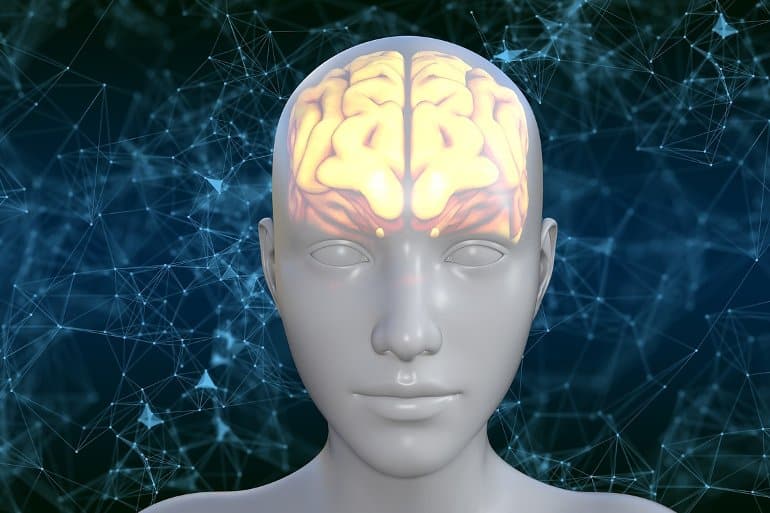Hello 👋 guys check out our newest video.
#(What)
#destrorobotics.
Please like 👍and subscribe to our channel.
Hello 👋 guys check out our newest video.
#(What)
#destrorobotics.
Please like 👍and subscribe to our channel.

The majority of commercial chemicals that enter the market in the United States every year have insufficient health and safety data. For pesticides, the U.S. Environmental Protection Agency uses a variety of techniques to fill data gaps in order to evaluate chemical hazard, exposure and risk. Nonetheless, public concern over the potential threat that these chemicals pose has grown in recent years, along with the realization that traditional animal-testing methods are not pragmatic by means of speed, economics or ethics. Now, researchers at the George Washington University have developed a new computational approach to rapidly screen pesticides for safety, performance and how long they will endure in the environment. Moreover, and most importantly, the new approach will aid in the design of next-generation molecules to develop safer pesticides.
“In many ways, our tool mimics computational drug discovery, in which vast libraries of chemical compounds are screened for their efficacy and then tweaked to make them even more potent against specific therapeutic targets,” Jakub Kostal, an assistant professor of chemistry at GW and principal investigator on the project, said. “Similarly, we use our systems-based approach to modify pesticides to make them less toxic and more degradable, while, at the same time, making sure they retain good performance. It’s a powerful tool for both industry and regulatory agencies that can help design new, safer analogs of existing commercial agrochemicals, and so protect human life, the environment and industry’s bottom line.”
Using their model, the team analyzed 700 pesticides from the EPA’s pesticide registry. The model considered a pesticide’s likely persistence or degradation in the environment over time, its safety, and how well it performed at killing, repelling or controlling the target problem.
Putin’s war on Ukraine grinds on, into its fourth week. Civilian casualties are mounting, families have been ripped apart, and vast areas are destroyed. President Zelensky says Putin has turned his country’s sky into a source of death. But whether Putin wins or loses, it’s clear there’s no returning to the status quo ante. What will emerge from this crisis in the center of Europe? The fate of democracy is at stake. What can a new world order look like? Scholar and author Francis Fukuyama joins the show to discuss whether the U.S.-led world order can survive — and whether America has the moral authority and the will to lead.
Originally aired on March 18, 2022
For more from Amanpour and Company, including full episodes, click here: https://to.pbs.org/2NBFpjf.
Like Amanpour and Company on Facebook: https://bit.ly/2HNx3EF
Follow Amanpour and Company on Twitter: https://bit.ly/2HLpjTI

Public policy includes efforts by governmental as well as nongovernmental agencies (other than professional associations) to manage genetic enhancement. For example, the International Olympic Committee has a policy on performance-enhancing drugs in sport. In the United States, the Food and Drug Administration classified synthetic anabolic steroids as a restricted class of drugs, making it more difficult to get access to them. Such measures will not always be successful. Epoetin alfa (EPO) is a useful medication for the many people who suffer from chronic anemia, including people who must undergo regular renal dialysis. As a consequence, it is in very wide supply for legitimate therapeutic purposes, unlike the synthetic anabolic steroids. Imposing strict limitations on access to EPO would create an enormous inconvenience for the large number of people who benefit from the drug. The fact that some athletes are able to get their hands on EPO is an unintended consequence of having the drug widely available for legitimate therapeutic uses. The appropriate public policy will not be the same, necessarily, for every drug.
By “personal policy” we mean the moral understandings and social practices of individuals, parents, and families, including those moral convictions that would cause them to refrain from unwise or unfair use of genetic enhancement technologies. The Worth of a Child, for example, focuses on ethical issues involving children and parents.11 How does one engage that sort of personal policy response? The means we have are limited but powerful: education, public dialogue, and the encouragement of ethical reflection.
In conclusion, there are four points worth reiterating. First, as we think about genetic enhancement, we should use a broad definition of genetic-enhancement technologies, not merely gene manipulation, but indirect genetic technologies, such as biosynthetic drugs. Second, we should try to anticipate the enhancement temptations of new therapies. Such anticipation may help us in shaping the marketing, availability, or other aspects of those technologies. Third, we should promote the adoption of appropriate public and professional policies. Finally, we should provide public education and dialogue to encourage personal ethical reflection on the appropriate uses and limits of genetic-enhancement technologies.

The rising visibility of Ethical AI or AI Ethics is doing great good, meanwhile some believe it isn’t enough and a semblance of embracing Radical Ethical AI is appearing. This is closely examined, including for AI-based self-driving cars.
Has the prevailing tenor and attention of today’s widely emerging semblance of AI Ethics gotten into a veritable rut? Some seem to decidedly think so.
Let’s unpack this. You might generally be aware that there has been a rising tide of interest in the ethical ramifications of AI. This is often referred to as either AI Ethics or Ethical AI, which we’ll consider herein those two monikers as predominantly equivalent and interchangeable (I suppose some might quibble about that assumption, but I’d like to suggest that we not get distracted by the potential differences, if any, for the purposes of this discussion).

Summary: A new ethical framework proposes researchers should already assume brain organoids already have consciousness, rather than waiting for research to confirm they do.
Source: Kyoto University.
One way that scientists are studying how the human body grows and ages is by creating artificial organs in the laboratory. The most popular of these organs is currently the organoid, a miniaturized organ made from stem cells. Organoids have been used to model a variety of organs, but brain organoids are the most clouded by controversy.

The AI nanny is here! In a new feat for science, robots and AI can now be paired to optimise the creation of human life. In a Matrix-esque reality, robotics and artificial intelligence can now help to develop babies with algorithms and artificial wombs.
Reported by South China Morning Post, Chinese scientists in Suzhou have developed the new technology. However, there are worries surrounding the ethics of actually artificially growing human babies.

Fujitsu said it will establish an AI ethics and governance office to ensure the safe and secure deployment of AI technologies.
To be headed by Junichi Arahori, the new office will focus on implementing ethical measures related to the research, development, and implementation of AI and other machine learning applications.
“This marks the next step in Fujitsu’s ongoing efforts to strengthen and enforce comprehensive, company-wide measures to achieve robust AI ethics governance based on international best-practices, policies, and legal frameworks,” the company stated.

China is trailblazing AI regulation, with the goal of being the AI leader by 2030. We look at its #AI ethics guidelines.
The best agile and lean development conferences of 2022.
The European Union had issued a preliminary draft of AI-related rules in April 2021, but we’ve seen nothing final. In the United States, the notion of ethical AI has gotten some traction, but there aren’t any overarching regulations or universally accepted best practices.